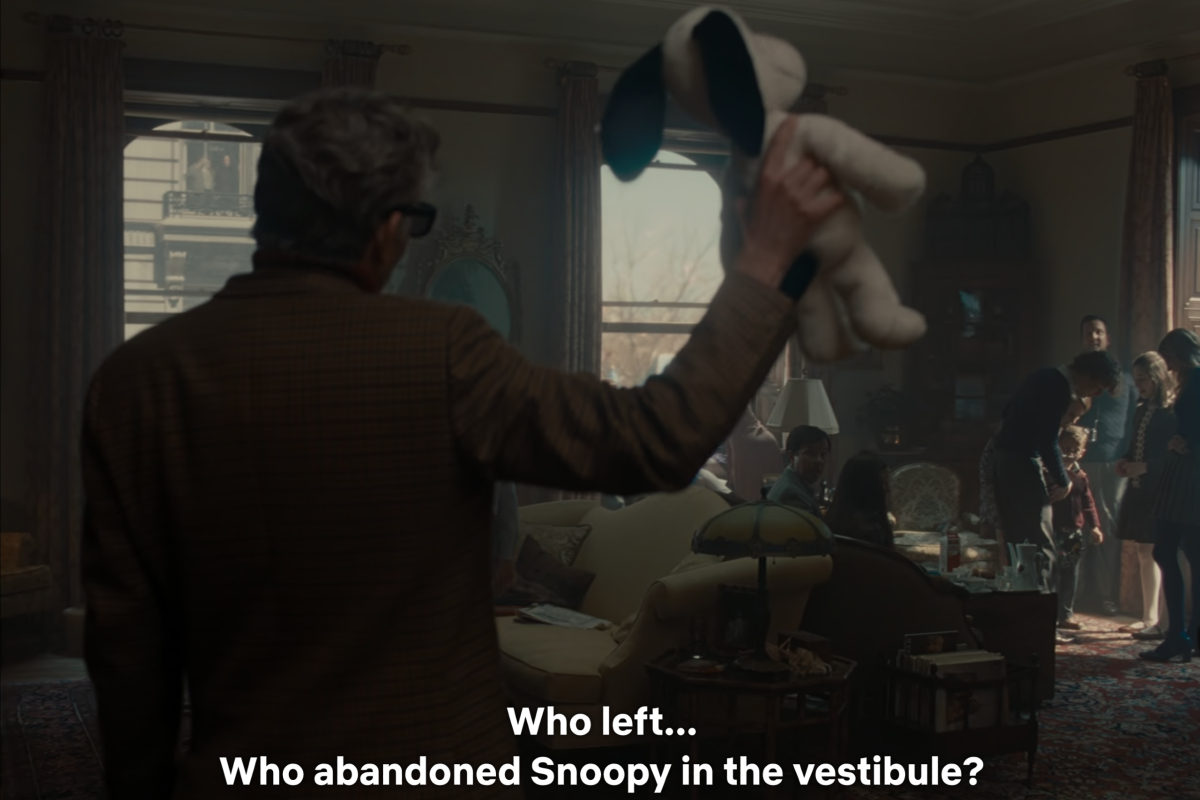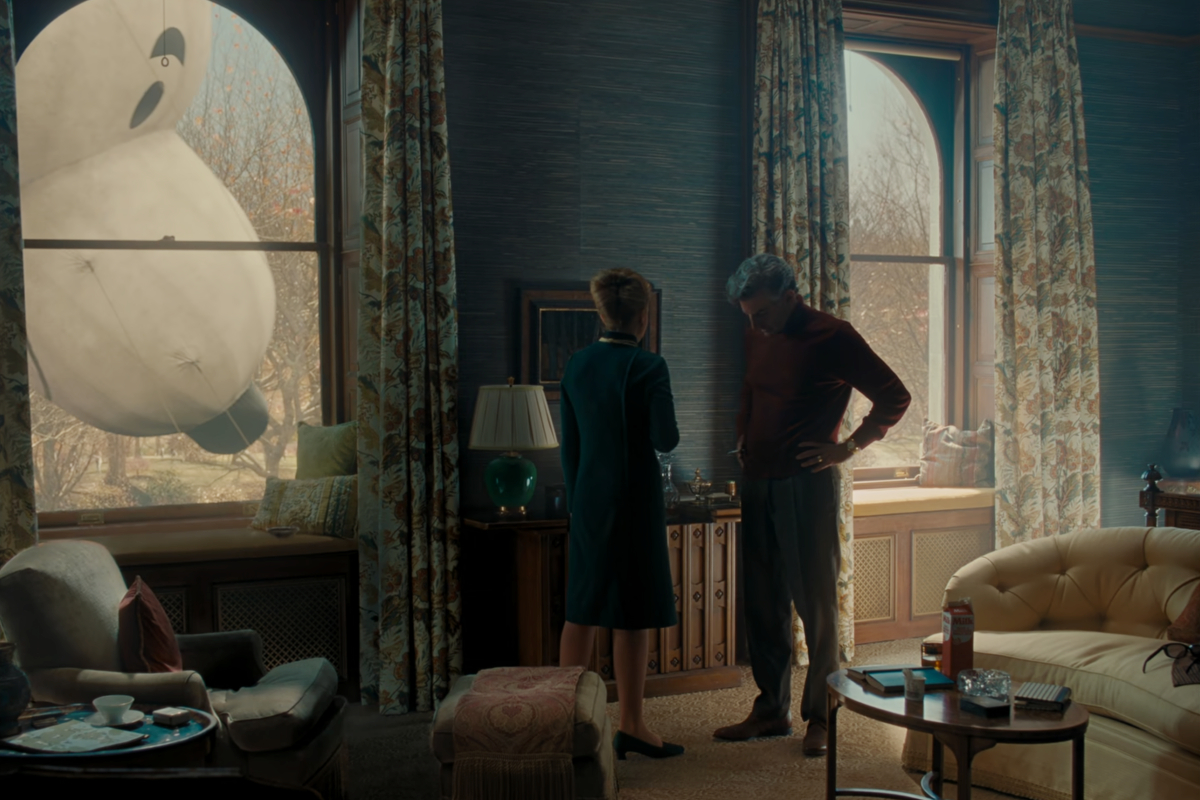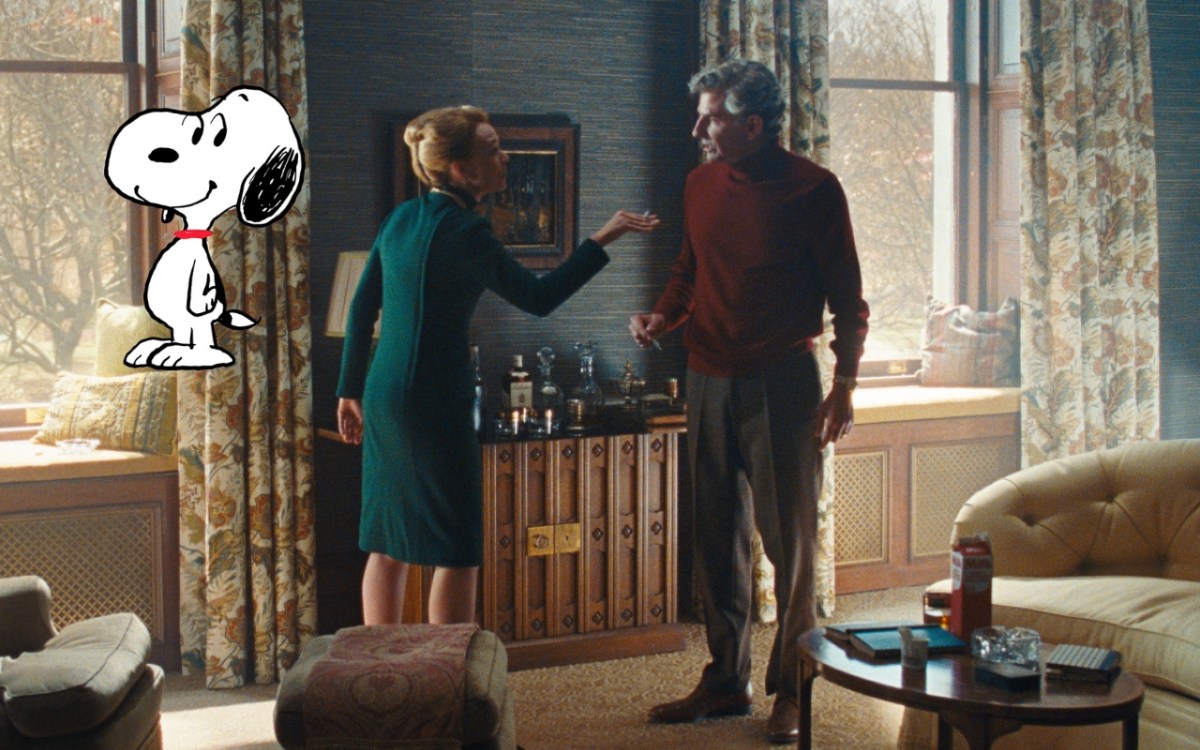Now that Maestro is on Netflix and more people have had a chance to see it, the discourse has turned to separating fact from fiction in Bradley Cooper’s film—which is less of a biopic and more like a moving poem dedicated to Leonard Bernstein and his relationship with Felicia Montealegre. But there’s one scene in particular that I cannot stop thinking about. And it involves a certain little guy from Peanuts.
Maestro is a lovely and at times startling portrait of the great American composer Leonard Bernstein (Cooper), and his wife, the actress and social activist Felicia Montealegre (Carey Mulligan). Rather than focusing on what he accomplished during a career that included composing Broadway musicals, conducting the biggest orchestras in the world, and supporting civil rights, Maestro unfolds through a series of smaller moments in Bernstein and Montealegre’s lives. With the blessing of the couple’s children, Cooper explores the composer’s all-consuming public persona, his private identity as a gay man, and the complexities of his relationship with Montealegre, who was well-aware of her husband’s sexuality.
While that approach is sure to alienate some viewers, I found it remarkably compelling. As for the scene in question, it’s set sometime in the ‘70s and begins when Lenny comes home on Thanksgiving morning to find that Felicia—frustrated with her husband staying out all night—has left his slippers, a toothbrush, and a pillow on their front doorstep. Lenny enters the apartment to find his family waiting for his arrival, and a stuffed Snoopy carelessly abandoned in the entryway.

“Who abandoned Snoopy in the vestibule?” he asks. “I mean, it’s his day.” It’s such a funny moment, but what happens immediately after it is one of the greatest scenes in the film, and one example of Cooper’s sensibilities as a filmmaker.
Lenny follows an exasperated Felicia into a sitting room, where she smokes by a window overlooking the Macy’s Thanksgiving Day parade. As Lenny grabs a glass of whisky and a carton of milk (a move worthy of its own dissection), he dismisses Felicia’s frustration with how “sloppy” he’s become in how he conducts his personal life—staying out late, overindulging in vices, and not being particularly sensitive to the optics as they concern his wife.
“There’s a saying in Chile,” Felicia says, “about never standing under a bird who’s full of shit. And I have just been living under that fucking bird for so long, it’s actually become comedic.” Lenny continues to dismiss her feelings as mere sadness, but she cuts him off: “Oh, stop it. It’s about you, so you should love it. You want to be sleepless and depressed and sick. You want to be all of those things so you can continue to avoid fulfilling your obligations.” What follows is an intensely intimate argument between the two. Felicia says Lenny isn’t honoring the “gift” that he’s been given, i.e., his lovely family and doting wife; Lenny says that gift comes with certain burdens. She calls bullshit. “Hate in your heart,” Felicia says, “Hate in your heart and anger.”
The scene feels voyeuristic and so real—certainly to anyone who grew up in a dysfunctional family. Lenny and Felicia volley arrows, one after the other, relitigating past hurts and tearing at fresh wounds. When Lenny mentions living in his truth, Felicia unleashes with a brief, breathtaking monologue that ends with a warning: “If you’re not careful, you’re going to die a lonely, old queen.”
And then a towering figure slowly creeps into the frame, just outside the window … ladies and gentlemen, Snoopy:

It’s a surreal moment: the gigantic Snoopy parade float in the window, hovering over these two people who have just said horrible things to each other. In the background, we hear the children shouting excitedly about Snoopy.
There’s a gallows humor quality to this juxtaposition that makes it feel more real and personal. Like when you’re experiencing one of the worst moments or days of your life, and something so absurd happens in the middle of it that you can’t help but look back and laugh at the way that the world continued on around you when it should have stopped to recognize your pain. Moments like this are what set Maestro apart from other biopics and assert Cooper as a great filmmaker. As someone who largely disliked A Star Is Born, I’m surprised at how much I love Maestro and admire its compositions and craft.
Given all the questions around the film and how faithful it is to Bernstein and Montealegre’s life, it was only a matter of time before someone asked about The Snoopy Scene. Co-writer Josh Singer told USA Today that he believes it was mentioned in Famous Father Girl: A Memoir of Growing Up Bernstein by Jamie Bernstein, Leonard’s daughter. “That’s a Bradley thing. He fixated on the Snoopy of it all,” Singer said. “We always knew we were going to get to a fight deep in the second act, and the fight is sort of mentioned in (Jamie Bernstein’s) book. Snoopy was mentioned as well, or maybe she told that to Bradley, and he wouldn’t let it go.”
And now I cannot let it go, either. Bury me with the Snoopy scene.
(featured image: Netflix)










Published: Dec 22, 2023 05:31 pm